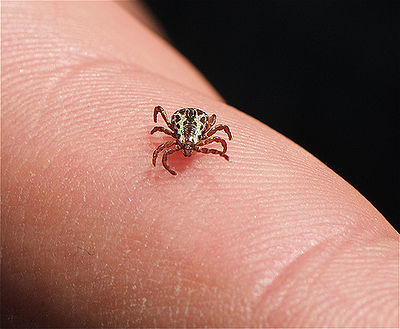
Lyme Disease is a tick-borne disease. It can be found all over the world and in all of the U.S. The Northeastern U.S. including New York, Massachusetts, New Jersey, Rhode Island and Connecticut carry the majority of cases. It was first discovered in Lyme, Connecticut where it got its name.
While not all ticks carry Lyme Disease, there are a number of species that are carriers. Their bite can infect humans and animals with Lyme Disease as well as a number of other tick-borne diseases.
Lyme Disease has been found mainly in dogs, but cats, horses, cows and goats have also been diagnosed with it.
Symptoms can be fever, soreness, limping, inappetance, swollen glands and joints. In horses and cows, infertility, abortion and weight loss have been noted.
Since Lyme Disease mimics other conditions and symptoms can be intermittent, you must check with your veterinarian who will test for the disease.
Try to keep your garden tick-free using products such as diatomaceous earth. Make sure to choose the variety that is not toxic to pets if eaten. In heavily infested areas, stronger measures may be necessary.
Keep your pets away from areas that you know are or could be tick infested.
Check your pet daily for ticks after being outdoors. As soon as you find a tick, remove it using a tweezers. Grab it as close to the skin as possible. A cotton ball soaked in soap and rubbed back and forth for a minute on the tick will loosen it. The tick then becomes stuck on the cotton ball.
If at all possible, save the tick for species identification through local health departments. Place it in a tightly sealed container with rubbing alcohol and make a note of the date, area found, type of animal it was found on and any other pertinent information.
Use flea and tick preventatives on your pets. There are many natural products on the market that are easy to apply and with consistent use, will keep pets away.
Lyme Disease is treated with antibiotics. Prolonged treatment depends on the severity of the disease. Lyme Disease has been know to recur in both humans and animals.



